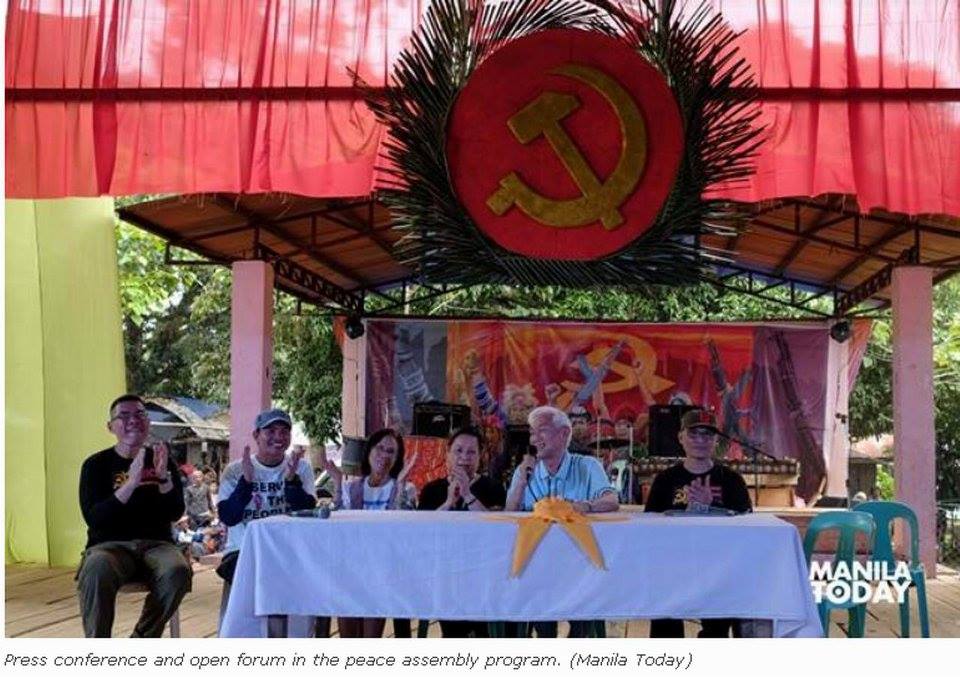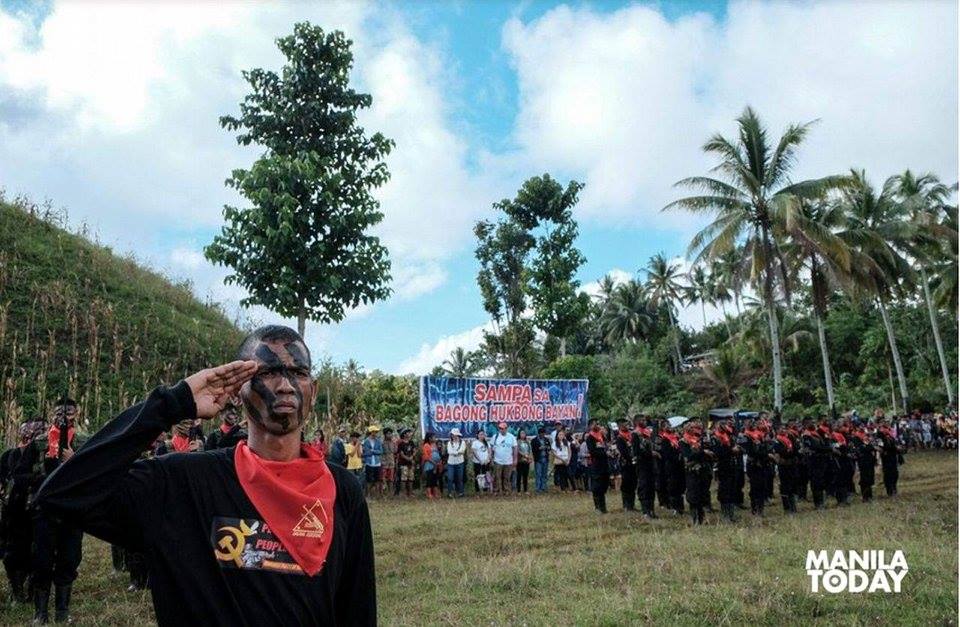

By Jose Maria Sison
Founding Chairman, Communist Party of the Philippines
Chief Political Consultant, National Democratic Front of the Philippines
December 26, 2016
Dear Comrades and Friends,
Let me first give the Red salute and warmest revolutionary greetings to the Communist Party of the Philippines, the New People’s Army, the National Democratic Front of the Philippines, the local organs of people’s democratic government and the broad masses of the people on the occasion of the 48th anniversary of the reestablishment of the CPP under the theoretical guidance of Marxism-Leninism-Maoism.
This is a day of celebrating the accumulated and recent victories of the Party, the people’s army and the people in the new democratic revolution through protracted people’s war. This is also the day for the people to manifest their indignation over the Duterte regime’s failure to fulfill its promises in the peace negotiations, especially the amnesty and release of all political prisoners listed by the NDFP in compliance with the Joint Agreement on Safety and Immunity Guarantees (JASIG) and the Comprehensive Agreement on Respect for Human Rights and International Humanitarian Law and in consonance with a possible bilateral interim ceasefire agreement and the plan to accelerate the peace negotiations.
This is the day for peace rallies nationwide to demonstrate the Filipino people’s unity for a just and lasting peace. In this regard, a national assembly is held in a guerrilla zone somewhere in Davao City. All sectors of society that are desirous of a just and lasting peace are expected to join the peaceful actions under conditions of the reciprocal unilateral ceasefire declarations. Representatives of the Duterte regime have also been invited to attend in order to hear for themselves the people’s outcry for justice. We make complaints and constructive criticism in the hope of obtaining positive results for the benefit of the people.
We have no other objective but to demand the amnesty and release all political prisoners and give way to a bilateral ceasefire agreement. These matters can be settled in a few number of hours. We should not get stuck on such matters by dealing with them piecemeal over a long period of time. We can make a stable bilateral ceasefire agreement by learning lessons from the period of unilateral ceasefire declarations. Oplan Bayanihan should be terminated and should not be replaced by another brutal oplan under General Año, who kidnapped Jonas Burgos. Safe distances must be kept between the armed forces and units of the GRP and the NDFP by restricting them to barracks at battalion or higher level in the case of the AFP or areas of encampment in the case of the NPA at company level.
The GRP and NDFP negotiating panels should finish and sign the comprehensive agreements on social and economic reforms, political and constitutional reforms and end of hostilities and disposition of forces within the first or second year of the Duterte regime and there will be at least three or four years to observe the implementation of the agreements on basic reforms and allow the cooperation of the cadres, Red fighters and revolutionary forces with the regime in the social, economic, cultural, political and security system of a truly independent, democratic, progressive and prosperous Philippines.
The main interest of the NDFP and the People´s Revolutionary Government in social and economic reforms is economic development through national industrialization and genuine land reform. Also, their main interest in political and constitutional reforms is upholding national sovereignty and democratic principles. They are also willing to co-found the Federal Republic of the Philippines with the Duterte regime and make a new constitution that prevents fascist dictatorship, political dynasties, warlordism and dissipation of national resources.
We should welcome the third round of formal talks to be held between the GRP and NDFP negotiating panels in Rome from January 19 to 24, 2017. The Reciprocal Working Committee of the NDFP will be going to these talks with its 84-page proposed draft of the Comprehensive Agreement on Social and Economic Reforms (CASER). The Reciprocal Working Group of the NDFP on Political and Constitutional Reforms will be ready with a rough draft of at least 20 pages of the Comprehensive Agreement on Political and Constitutional Reforms (CAPCR). The Reciprocal Working Group of the NDFP on End of Hostilities and Disposition of Forces (RWG-EHDF) will be observing the talks to gain insight for drafting its assigned comprehensive agreement.
The prospects are still bright in the GRP-NDFP peace negotiations if we consider that the rounds of talks are proceeding successfully. The discussion on CASER and on other matters can certainly progress during the third round of formal peace negotiations. It would be alright for the talks in Rome to schedule the fourth round in a neutral venue. The two sides can meet to talk whatever is the status of the talks on the bilateral ceasefire agreement; and even if the NDFP would end its unilateral interim ceasefire declaration due to the ruthless incursions on its territory of the enemy armed forces.
Even if the GRP remained unwilling to amnesty and release all political prisoners in compliance with the JASIG and CARHRIHL and in consonance with a bilateral ceasefire agreement, the NDFP would still be willing to negotiate peace while fighting in the battlefield. The delay in reaching the bilateral ceasefire agreement is the responsibility of the GRP, because of its refusal to fulfill its promise of amnesty and release of all political prisoners. The NDFP has no choice but to pursue the line of people´s war in order to strengthen the people´s army and other revolutionary forces as the means to avoid the pitfall of capitulation and pacification through an indefinite ceasefire that would certainly result in a lack of interest on the part of the GRP to negotiate the substantive agenda of the peace negotiations.
###
